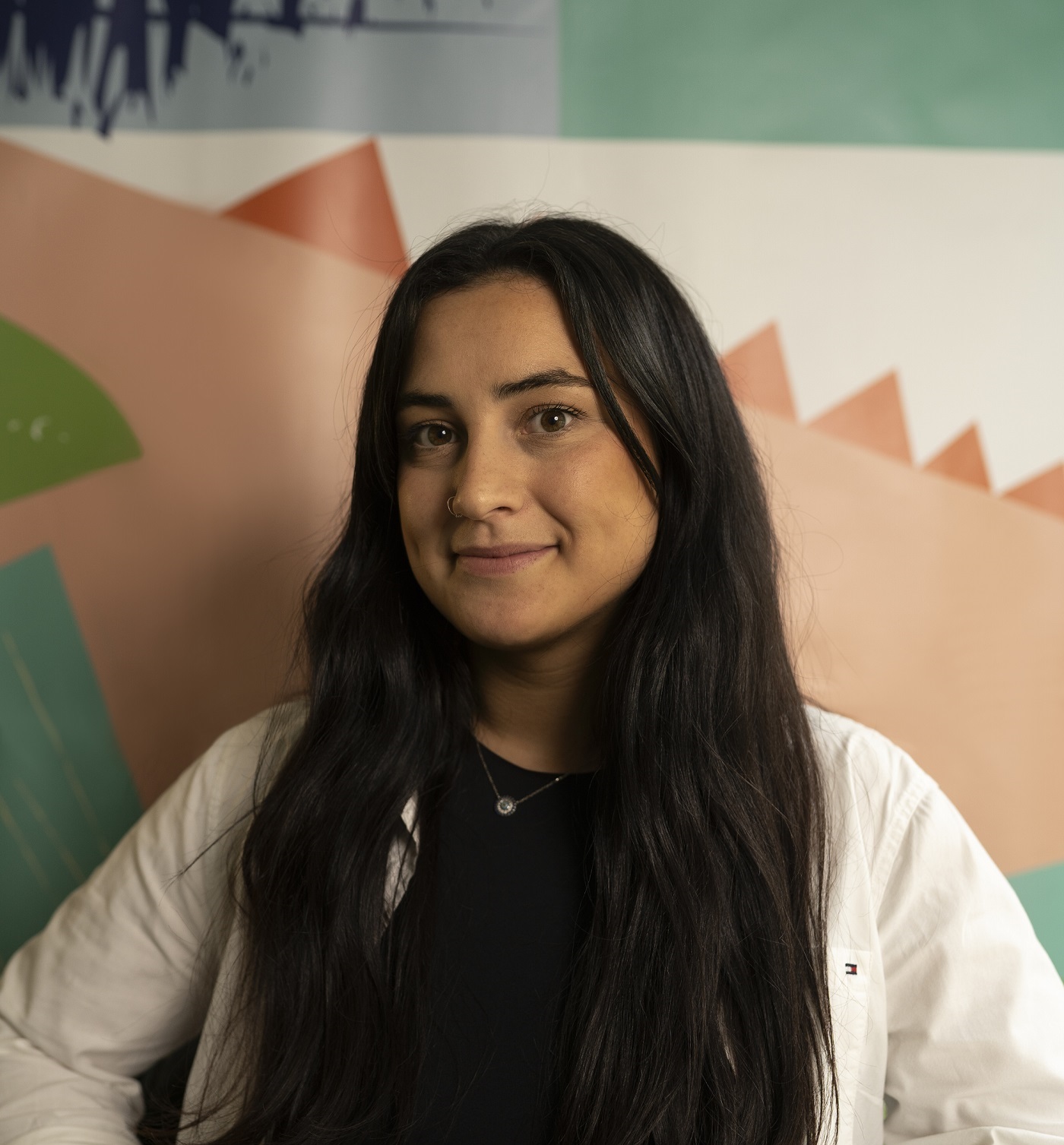IFTA Nominated Dathaí Keane talks about saying goodbye to Smother
Interview
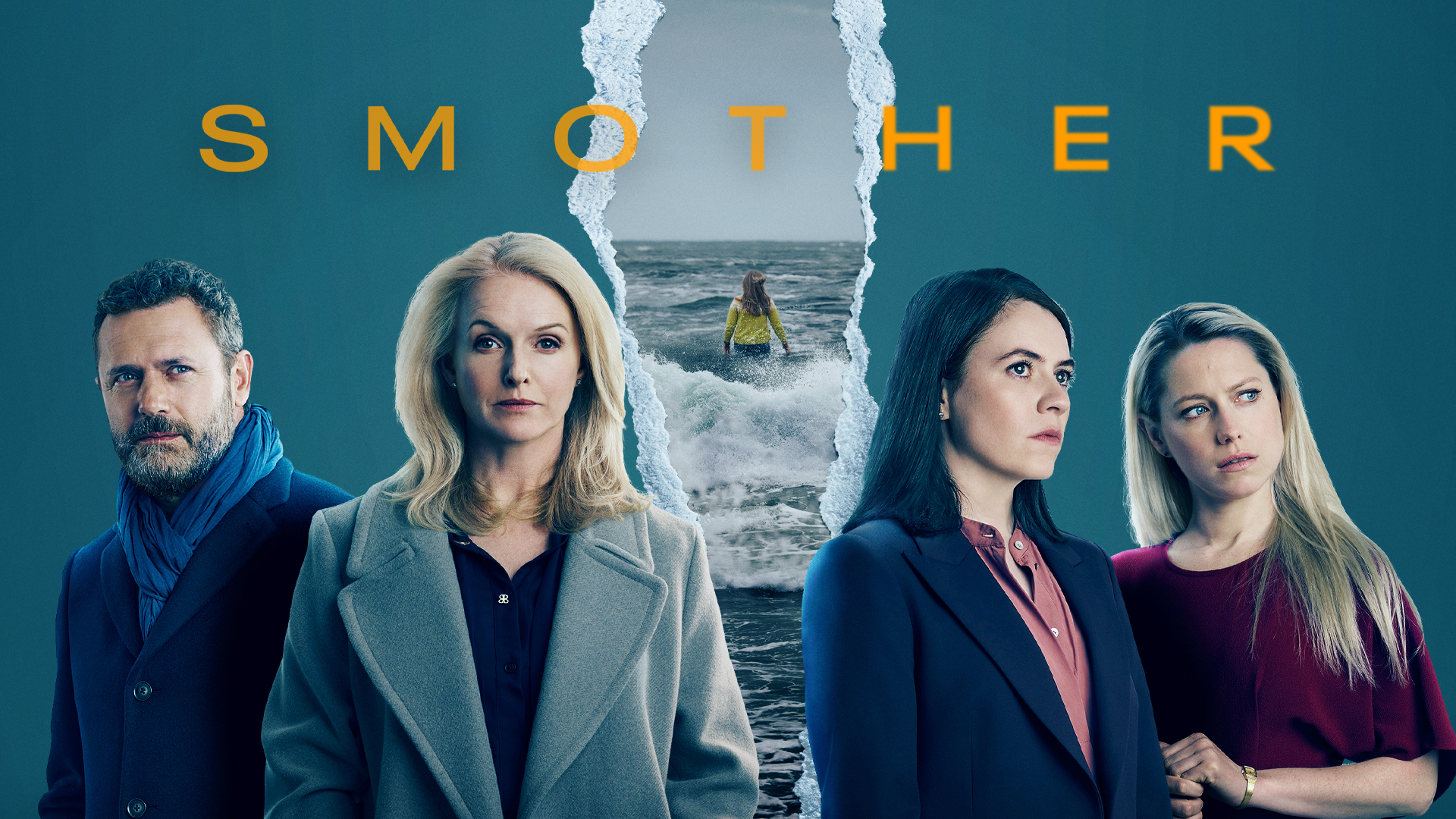
[Estimated Reading Time – 8 mins]
On the back of 5 x IFTA nominations – Jason Gaffney sat down with Dathaí Keane (IFTA nominated / Director-Drama) to discuss the final season of Smother – RTÉ’s massively successful drama starring Dervla Kirwan and Fionnuala Flanagan. Dathaí reflects not only on his time as Smother director but also on his growth as a filmmaker as well as the many challenges overcome post-Covid.
With Smother’s final episode airing this week – how do you reflect on your time on the show?
Smother was a really rewarding and almost life-changing experience. Going into Season One – we didn’t know what was coming. We were all excitement for the show. But then midway through our filming, we got shut down (pandemic). So having done three seasons – it’s very much bound up with that crazy time.
We all lived in the same bubble and we developed stronger relationships with crew. It’s probably something that as time goes by, it’ll really start to resonate. Rob (Walpole) and Rebecca (O’Flanagan) [Meet Rob & Rebecca] were pivotal during this period in showing support and always being supportive. They drove the project forward.
I would say that Dervla Kirwan set the tone on-set in terms of culture. Out of 65 day shoots she was there probably 60 days. She’s kind of the backbone of the whole show and really gave it her all.
Do you still have fear going into a shoot? With the aforementioned challenges how do you prepare?
It’s all in the preparation. So already now we’re starting on a new show. Before you shoot is when the proper work is being done so that when you get to set – it should run smoothly enough. If a challenge does come – you don’t panic because you know what the schedule is, we know what the scripts are etc. We can work around it. And by having all that preparation done, you set the pieces in place to achieve what you want.
A typical set of examples would be; planning with AD’s, discussing shot-lists, agreeing on how we will shoot things with the DOP, being methodical and mapping it all out in advance.
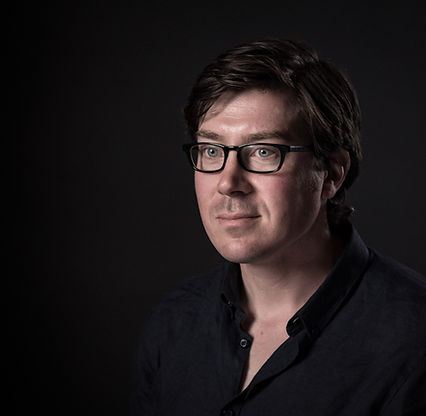
To me the landscape plays such a big role in Smother. Would you agree that its central to the show?
100%. We wanted the landscape to be a character. Lahinch is just trapped between the land and the sea. It’s very elemental. You have the rugged Wild Atlantic Way sitting beside the Burren, which is on its own; unique, mysterious and beautiful. There’s a harshness to the Burren. Which is something I think that came into the show, because even though there’s a beauty to Smother – it’s quite an austere beauty. That’s something I think that reflected the landscape, especially the blasted rocks that you find, the narrow trees that really are trying to eke a living out of this thin soil. And that’s something I think we were always conscious of when we were making the show– It was something we tried to, to weave into it as much as we could.
Do you feel the landscape influenced the characters behaviour in any way?
Well people are inherently connected to place. So it’s ‘how can that be reflected in story’ and then for characters who aren’t of that place ‘is there a contrast or a conflict between them and those who are more deeply established?’. It’s something we talked about. Because we did a lot of exterior work. We are out in the elements quite a bit and for the interiors we chose them as reflections of the landscape. For example – the houses often face onto the sea or else they would be nestled into a mountain side suggesting a need to be protective or sheltered. So we were trying to find locations that really spoke to that and spoke to who each character was.
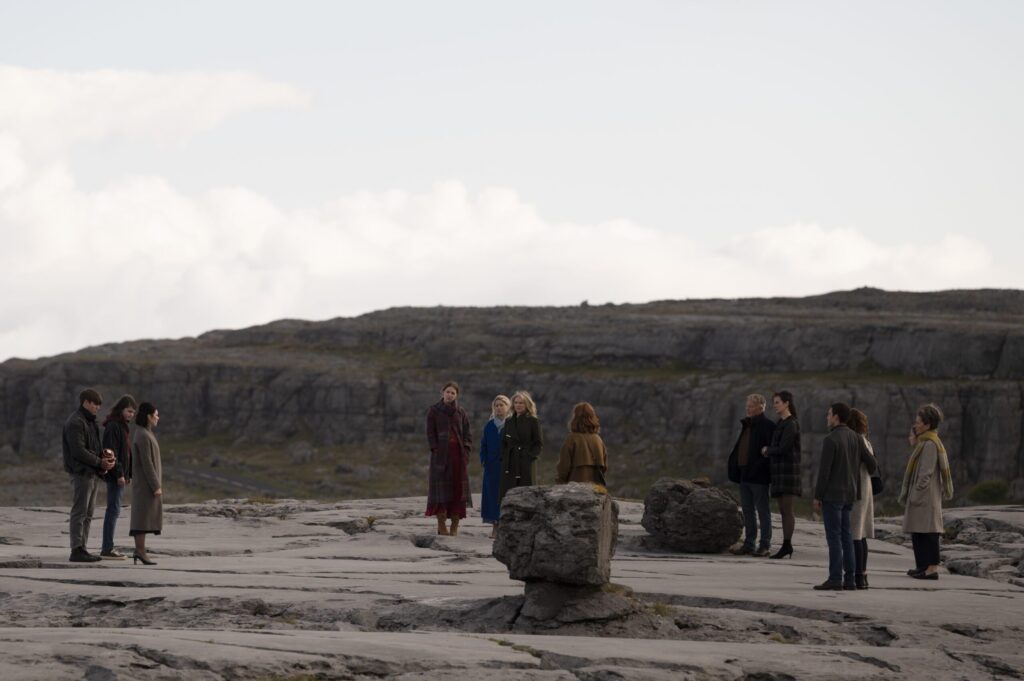
[Burren landscape, Smother]
Now that you mention it – the original promotional poster referenced the roots of each character. How much of this was discussed with the PR team in advance?
Correct. When we spoke with the publicity team we spoke about how we will portray the characters and they kept coming back to family heritage and legacy. So we took elements from that, drew up concepts and came up ‘the family tree’. The roots run deep and still impact the lives of these characters to this day.
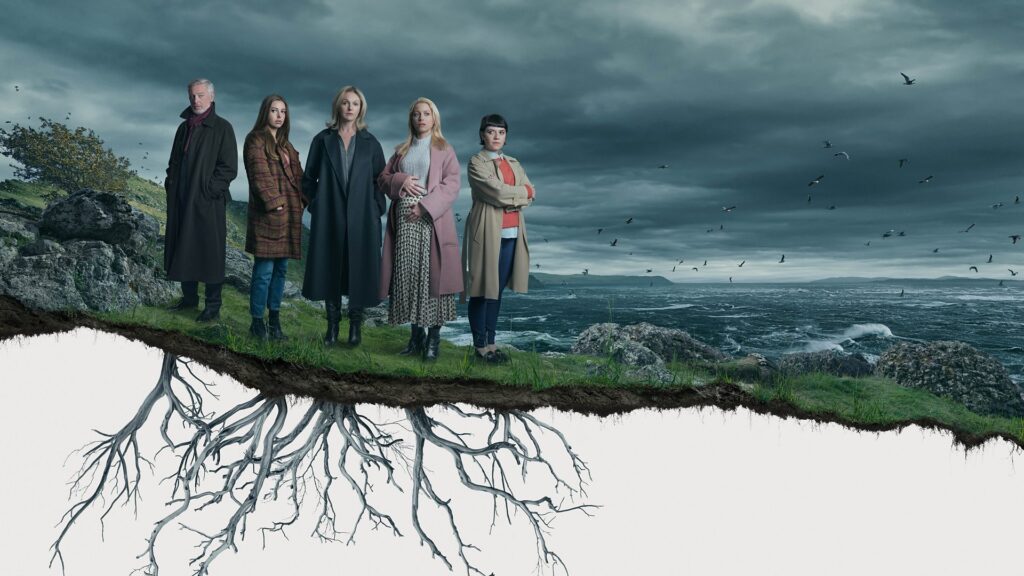
[Smother – Season One Promo Poster]
Smother includes some VFX – posted by Windmill Lane. How do you find working with VFX and how does that impact your approach to filmmaking?
For Smother I worked alongside John Kennedy [Head of VFX/Windmill Lane] who was across the process. There were conversations we had before we shot so this allowed us to shoot in the most effective way possible.
Windmill Lane VFX Supervisors were down on set for the days we were shooting. They took those materials away, worked on them and what they ended up delivering was outstanding. I think a lot of that was because of the planning stages and having John be there and talk us through what he felt would help achieve the look.
Did the shoot of Season 3 throw up any unique challenges that the VFX could help with?
Well we filmed in a water tank in Wicklow. On the day there were certain things we had difficulty with. For ex with a water tank you can have your actor in there for a certain amount of time. It’s very hard to keep things steady in frame because everything’s moving.
It’s quite difficult to light for it because there’s so much reflection off materials you can light and the water tank has a certain light source from the side that you can see sometimes. So when we were filming it we were getting lots of material but it was always a case of questioning ‘okay this is almost like just raw material that the VFX guys are gonna have to do some work on’ to create the shots that we’d discussed. This was probably the most time consuming VFX work for Season 3 but we were delighted with how it turned out.
How important is sound for you and how was it working with Fionán Higgins & Mark Henry at Windmill?
It’s such an important process. I think people are surprised by the amount of time we put into sound. I think it’s what distinguishes a good show from something a little bit pedestrian. If you hear good sound – it just brings the thing to life in a vital way. It elevates everything. It really makes a drama stand out if the sound design and mix is top-notch – which I think we’ve always gotten with Windmill.
I have noted a trend in TV that you almost need subtitles for an English speaking program – as the dialogue can be hard to understand. Smother is a dialogue-heavy piece so it was time consuming for me and the team. We have a dialogue editor on hand making sure it’s all in there and if it’s not – we move to ADR.
For me – I think it’s important to be creative in ADR. I think a lot of people aren’t aware of the ways you can re rejig a scene in the edit by just coming up with lines of creative ADR. Or something is a little bit unclear in terms of story narrative. You can insert a line of dialogue into it or rewrite the script a little bit in the post process.
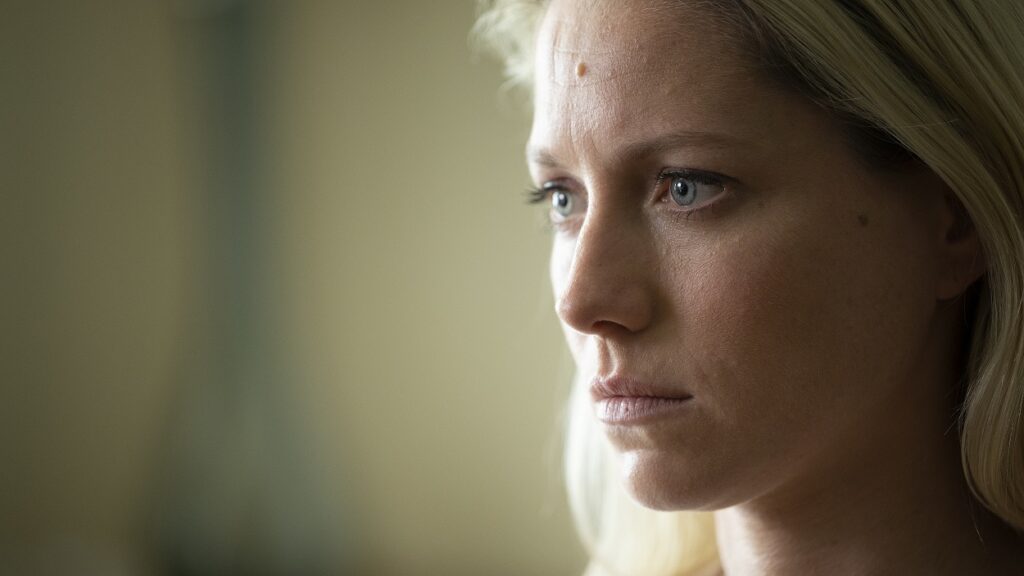
[Niamh Walsh, Smother]
You have also worked with Matt Branton in the Grade for all 3 seasons?
Yes. A good example of how crucial the grade is; If we were dealing with, say, a flashback Matt would come up with a certain look for the flashback, maybe treating the material a little bit differently, giving us a distinctive feel so that the audience knows. Because once we establish that convention and we do a true audio and true picture – then every time the flashback pops up – the audience is along with us. It’s something we can use to help them. The grade can be another storytelling device.
After 3 seasons – is there a level of trust whereby you can let the Windmill team (VFX, Audio, Grade) ‘do their thing’?
To an extent. There is a level of trust that has been built up over three seasons where I’m very happy for Mark Henry, for example, to work his own creative magic across the sound design and find moments. There’s moments where you want the sound design to be really prominent and the score might have to take a backseat. But then there’s moments where the score needs to drive the story. And I suppose it’s just balancing that and that’s something we could do collaboratively when we’re watching it through.
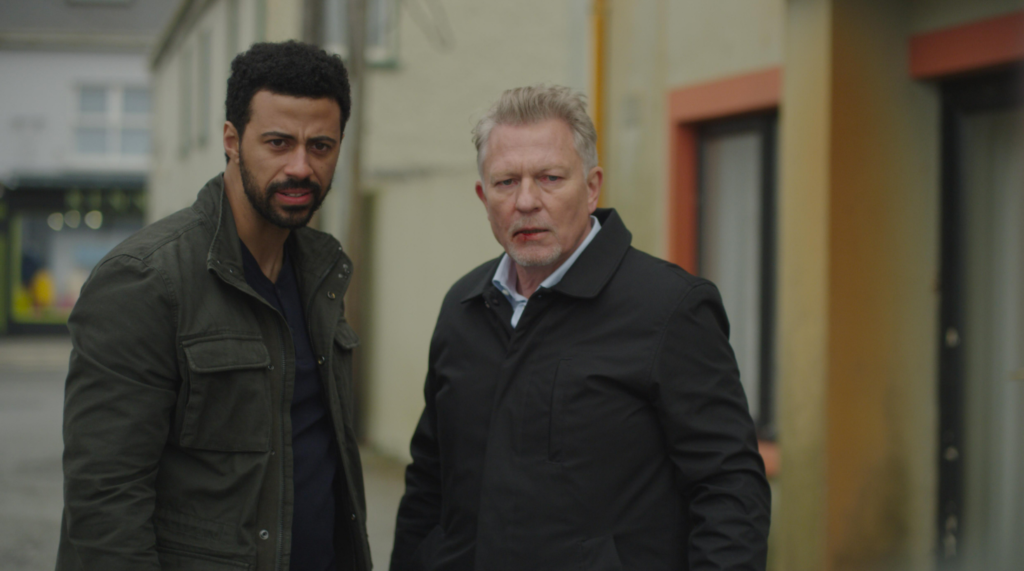
[Dean Fagan & Conor Mullen, Smother]
What advice would you offer someone looking to replicate your career?
Don’t be afraid to tell your own stories. I think oftentimes we’ve had a propensity in this country [Ireland] to service other people’s stories too much. We’ve been very happy to let everybody come in and tell other people’s stories. We’re at a stage where I think we can compete at the very highest end of drama production, and we can focus on telling stories that are rooted in this country and in our people.
The Irish are natural storytellers and I think we have so many stories that we can get out there. So I think people who are young, you know, look at what’s on your doorstep, look at what you can use. There’s a lot to be said for hard work as well.
